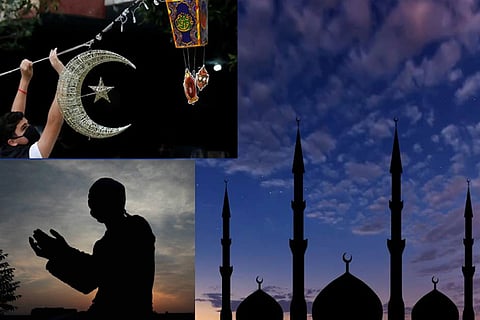

Chennai
Some of the sahur bavas (as they are commonly known) even defy rules to carry on their years-long practice. Tracing the voluntary service of the fakirs to a time when lamps on stone pillars lit public areas, Ibrahim Ali of Madurai says his family has seen members playing the daff and singing Islamic songs as they went around waking up people for sahur (also sehri) eight generations ago. Kaleel mentions the sahur bavas hitting the streets by 1 am, performing a new song each day, before winding up by 4 am when households would have turned on lights to indicate that they have risen. Dr PS Syed Masood Jamali, the Dean of the School of Arabic & Islamic Studies at the BS Abdur Rahman Crescent Institute of Science & Technology on the city outskirts, recalls his early days in his native in Tenkasi district when people would wake up only after the fakirs’ arrival. “Now, it has all changed,” the 72-year-old says, mentioning them to be largely confined to mohallas or Muslim residential areas.
Called on invitation days ahead of Ramzan, Ibrahim says he reached Kolathur near Tiruchy this time only to find that the lockdown has prohibited him from rendering service, and left him stranded. Kaleel Rahman (46), who says that his native of Uthamapalayam in Theni district saw gadgetry put an end to the demand for fakirs a few years ago, hasn’t been able to cover nearby Chinnamanur this season. Sources in the know in Chennai too say the fakirs here are forced to remain indoors. However, those in areas like Manjakollai and Nagore in Nagapattinam district mention carrying on the activity, in contravention to lockdown rules. Admitting to occasionally catch the eye of the police, the fakirs say the former has, however, not questioned their “service to Allah” as they largely confine themselves to Muslim pockets.
With no promised returns for such service during Ramzan, the fakirs say they unhesitatingly accept whatever aid in cash and in-kind the households provide them with during their visit after Ramzan. Habibullah Sirajudeen (63), an entrepreneur in the city, avers, saying that whatever charity the fakirs get from the Muslim community contributes to their livelihood. “But in some places like Ajmer and Nagore, they are well-respected and no function would happen without them,” he says, recollecting how he had engaged fakirs to perform at a family event hosted in his native town in Ramanathapuram district. Were there to be no such programmes after Ramzan, Kaleel says he would seek the kindness of households in the locality he served last time.
Visit news.dtnext.in to explore our interactive epaper!
Download the DT Next app for more exciting features!
Click here for iOS
Click here for Android